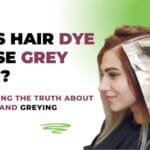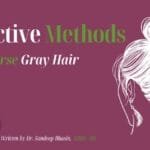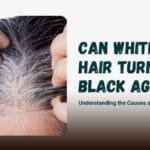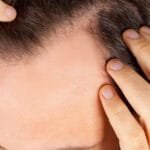Introduction
Welcome to the comprehensive guide on achieving dandruff-free hair in the monsoon season. As the rainy season approaches, many people struggle with hair problems, particularly dandruff. Dandruff can be quite bothersome, causing itchiness, flaking, and an overall unhealthy appearance of the hair.
In this guide, we will explore various tips, tricks, and remedies to help you combat dandruff and achieve beautiful, healthy hair even during the monsoon season. Let’s dive in and discover the secrets to dandruff-free hair loss treatment in the monsoon.
Understanding Dandruff and Its Causes
Dandruff occurs when the scalp’s natural renewal process is accelerated, leading to the shedding of dead skin cells in the form of white flakes. While some amount of shedding is normal, an excessive amount of flakes indicates an imbalance or underlying issue.
Several factors contribute to the development of dandruff, including:

Dry Scalp: When the scalp lacks moisture, it can become dry and flaky, resulting in dandruff. Cold weather, excessive use of harsh hair products, or insufficient hydration may all be contributing factors to dryness.
Seborrheic Dermatitis: This is a common skin condition that causes redness, inflammation, and greasy scales on the scalp. Seborrheic dermatitis can lead to dandruff, and its symptoms often worsen in humid environments.
Malassezia Fungus: The presence of a yeast-like fungus called Malassezia on the scalp can contribute to dandruff formation. This fungus feeds on the oils secreted by the hair follicles, leading to scalp irritation and flaking.
Excessive Oil Production: Overactive sebaceous glands can result in excessive oil production on the scalp’s hair health. This oiliness can trap dead skin cells, causing them to clump together and form visible flakes.
Improper Hair Care: Poor hair hygiene, such as infrequent washing or inadequate rinsing of hair products, can create a buildup on the scalp, leading to dandruff.
By understanding the causes of dandruff, you can tailor your rainy season hair care routine to address specific issues and prevent the recurrence of flakes and itchiness.
10 Early Signs of Hair Loss Learn more…
Importance of Maintaining a Healthy Scalp
Achieving dandruff-free hair starts with maintaining a healthy scalp. A healthy scalp provides the foundation for strong and beautiful hair. Neglecting scalp care can lead to various hair problems, including dandruff, hair loss, and dullness.
Here are some reasons why scalp health is crucial:
Improved Hair Growth: A healthy scalp promotes better blood circulation, allowing essential nutrients to reach the hair follicles. This nourishment promotes hair growth and prevents hair thinning or balding.
Prevention of Infections: A clean and well-maintained scalp is less prone to fungal or bacterial infections, which can cause dandruff and other scalp issues.
Balanced Oil Production: Regular cleansing and exfoliation of the scalp help maintain an optimal balance of oil production. This prevents the scalp from becoming too oily or too dry, reducing the chances of dandruff formation.
Enhanced Hair Texture: When the scalp is free from buildup and impurities, it creates an ideal environment for healthy hair growth. As a result, you can enjoy softer, shinier, and more manageable hair.
Now that we understand the importance of scalp health, let’s explore the best practices for hair care during the monsoon season.
Best Practices for Hair Care in Monsoon
The monsoon season brings increased humidity and moisture, which can make hair care challenging. However, with the right approach, you can maintain beautiful and dandruff-free hair.
Here are some best practices to incorporate into your hair care routine during the monsoon:

Frequent Hair Wash: Washing your hair regularly during the monsoon is crucial to removing excess moisture, sweat, and dirt that can accumulate on the scalp. Use a mild, pH-balanced shampoo that suits your hair type, and gently massage the scalp while washing.
Avoid Hot Water: While hot showers may feel relaxing, they can strip away the natural oils from your scalp and hair, leading to dryness and dandruff. Opt for lukewarm water instead to retain moisture and prevent scalp irritation.
Conditioning is Key: Applying a suitable conditioner after shampooing helps nourish the hair, improve manageability, and combat frizz. Focus on the ends of the hair while conditioning, and rinse thoroughly to prevent product buildup.
Scalp Exfoliation: Regular exfoliation of the scalp helps remove dead skin cells, excess oil, and product residue, reducing the chances of dandruff. Gently massage your scalp with a scrub or use a soft brush to exfoliate once a week.
Keep Hair Dry: Ensure your hair is completely dry before tying it up or going to bed. Damp hair can create an ideal environment for fungal growth and dandruff. Use a soft towel or a hairdryer on the lowest heat setting to gently dry your hair.
Protective Hairstyles: Opt for hairstyles that keep your hair away from the face and neck during the monsoon. Braids, buns, or ponytails can prevent excessive exposure to rain and humidity, reducing the chances of frizz and dandruff.
Avoid Chemical Treatments: Chemical treatments like hair coloring, perming, or straightening can weaken the hair and make it more susceptible to damage. It is advisable to avoid such treatments during the monsoon to maintain hair health.
Remember, consistency is key when it comes to maintaining a healthy scalp and dandruff-free hair. Incorporate these practices into your routine, and you’ll notice a significant improvement in the condition of your hair during the monsoon season.
Natural Remedies For Dandruff-Free Hair
In addition to following a proper hair care routine, you can also harness the power of natural remedies to combat dandruff effectively. These remedies are gentle, chemical-free alternatives that help balance the scalp and promote healthy hair.
Here are some popular natural remedies for dandruff-free hair:

Tea Tree Oil: Known for its antifungal and antimicrobial properties, tea tree oil can effectively combat dandruff. Add a few drops of tea tree oil to your shampoo or mix it with carrier oil like coconut oil. Massage the mixture into your scalp and leave it on for a few minutes before rinsing.
Aloe Vera Gel: Aloe vera gel has soothing and hydrating properties that can alleviate scalp itchiness and dryness. Apply fresh aloe vera gel directly to your scalp and leave it on for 30 minutes before rinsing. Repeat this process twice a week for best results.
Apple Cider Vinegar: Apple cider vinegar helps restore the scalp’s pH balance and eliminate dandruff-causing fungus. Mix equal parts of apple cider vinegar and water and use it as a final rinse after shampooing. Leave it on for a few minutes before rinsing it with water.
Neem Oil: Neem oil possesses antibacterial and antifungal properties, making it an excellent remedy for dandruff. Mix a few drops of neem oil with a carrier oil and massage it onto your scalp. Leave it on overnight and wash it off the next morning.
Yogurt and Lemon: The combination of yogurt and lemon juice helps nourish the scalp while combating dandruff. Mix half a cup of yogurt with the juice of one lemon and apply it to your scalp. Leave it on for 30 minutes before rinsing thoroughly.
Remember to perform a patch test before trying any new remedy to ensure you are not allergic or sensitive to any of the ingredients. Natural remedies may take time to show results, so be patient and consistent with your application.
Effective Hair Products for Monsoon
In addition to natural remedies, using suitable hair products can greatly contribute to maintaining dandruff-free hair during the monsoon season. Look for products that are specifically formulated to address scalp issues and provide hydration without weighing down the hair.
Here are some essential hair products to consider:

Anti-Dandruff Shampoo: Choose an anti-dandruff shampoo that contains ingredients like ketoconazole, zinc pyrithione, or selenium sulfide. These active ingredients help control fungal growth and reduce dandruff. Use the shampoo as directed and massage it into your scalp for a few minutes before rinsing.
Clarifying Shampoo: Regular use of styling products, oils, and pollution can lead to product buildup on the scalp. A clarifying shampoo helps remove this buildup, promoting a healthy scalp. Use a clarifying shampoo once a month or as needed.
Hydrating Conditioner: Look for a conditioner that provides deep hydration without weighing down the hair. Ingredients like shea butter, argan oil, or jojoba oil can nourish the hair and prevent dryness.
Leave-In Conditioner: A leave-in conditioner adds an extra layer of moisture and protection to the hair. Apply a small amount to damp hair and distribute it evenly from mid-length to the ends.
Scalp Serum or Tonic: A scalp serum or tonic containing ingredients like salicylic acid or niacinamide can help balance the scalp and control dandruff. Apply it directly to the scalp as directed.
When selecting hair products, it’s important to consider your hair type, specific scalp condition, and any allergies or sensitivities you may have. Opt for high-quality products from trusted brands and read customer reviews to ensure their effectiveness.
Styling Tips for Monsoon Hair
Monsoon weather can be unpredictable, and excessive humidity can wreak havoc on your hair. However, with the right styling techniques, you can keep your hair looking fabulous even on the rainiest days.
Here are some styling tips for monsoon hair:
Frizz Control: To tame frizz, use a silicone-based serum or hair oil. Apply a small amount to the mid-lengths and ends of your hair to keep it smooth and manageable.
Lightweight Hairstyles: Opt for hairstyles that allow your hair to breathe and prevent excessive sweating. Loose braids, ponytails, or top knots are stylish options that keep your hair off your face and minimize the chances of dandruff formation.
Protective Accessories: During the monsoon, invest in waterproof hair accessories like hairbands or headscarves. These not only keep your hair dry but also add a touch of style to your look.
Avoid Heat Styling: Excessive heat can further damage hair that is already exposed to humidity. Embrace your natural texture and avoid heat-styling tools as much as possible. If you must use them, apply a heat protectant spray to minimize damage.
Umbrella or Hat: Protect your hair from rain by carrying an umbrella or wearing a hat. This simple step can prevent your hair from getting soaked and minimize exposure to humidity.
Remember to strike a balance between styling and maintaining the health of your hair. Limit the use of styling products and techniques that may cause further damage or scalp irritation.
Common Myths and Facts About Dandruff
There are several misconceptions surrounding dandruff and its causes. Let’s debunk some common myths to help you separate fact from fiction:
Myth: Poor hygiene is the root cause of dandruff.
Fact: While poor hygiene can contribute to dandruff, it is not the sole cause. Dandruff can occur due to various factors, including dry scalp, oily scalp, or fungal infections.
Myth: Dandruff is contagious.
Fact: Dandruff is not contagious and cannot be spread from one person to another. It is a scalp condition that requires proper care and treatment.
Myth: Dandruff only occurs in winter.
Fact: While cold weather can exacerbate dandruff, it can occur at any time of the year. Factors like stress, hormonal changes, or improper hair care can contribute to dandruff formation.
Myth: Scratching the scalp helps get rid of dandruff.
Fact: Scratching the scalp may provide temporary relief but can worsen the condition in the long run. Excessive scratching can lead to scalp irritation and inflammation.
Myth: Dandruff can be cured completely.
Fact: Dandruff is a chronic condition that can be managed and controlled but not completely cured. Following a proper hair care routine and using suitable products can help keep dandruff under control.
If you have persistent dandruff or if it is associated with severe itching or hair loss, it is crucial to seek professional advice from a dermatologist or trichologist.
Conclusion
Maintaining dandruff-free hair during the monsoon season requires a combination of proper hair care, natural remedies, suitable products, and a balanced diet for hair growth. By following the tips and guidelines outlined in this comprehensive guide, you can keep your scalp healthy and enjoy beautiful, dandruff-free hair throughout the monsoon.
Remember to cleanse and nourish your scalp regularly, protect your hair from excessive moisture, incorporate natural remedies for dandruff, choose appropriate hair products, and maintain a balanced diet. With consistent care and attention, you can bid farewell to dandruff and embrace gorgeous, lustrous hair even in the rainy season.














